January 20, 2025
February 27, 2021 at 10:00 pm · Filed under Torah Portion
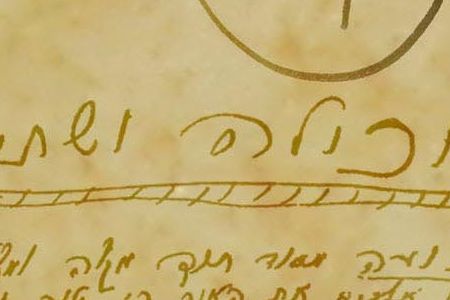
Exodus, 30:11-34:35
This Week’s Torah Portion | Feb 28 – Mar 06, 2021 – 16 Adar II – 22 Adar II, 5781
In A Nutshell
The portion, Ki Tissa (When You Take), begins with a request of each one of the children of Israel to donate half a shekel for the building of the tabernacle. The portion mentions some other details about the tabernacle such as the anointing oil, the table, and the menorah and its vessels, appointing Bezalel, son of Uri Ben Hur, as chief craftsman, Ahaliav Ben Ahisemech as his assistant, and commanding the children of Israel to observe the Sabbath.
Later, Moses ascends to Mount Sinai to receive the tablets of the covenant but delays in his return, so the children of Israel seek proof that the Creator exists and demand of Aaron to build a golden calf. Aaron agrees, takes their gold vessels, melts them, and builds the golden calf.
When Moses returns from the mountain and sees it, the tablets of the covenant break. The Creator wishes to destroy and ruin the entire people of Israel, and Moses pleads for their souls.
Moses speaks to the Creator “face to face,” and wishes to conceal himself.
At the end of the process, the Creator agrees and makes a covenant with the people of Israel. The Creator also promises Israel that they will enter the land of Israel, and repeats the commandment of the three Pilgrimage festivals (Shalosh Regalim) and the prohibition of idolatry.
Moses stays with the Creator on Mount Sinai forty days and forty nights, writes on the tablets, and comes down from the mountain. It is written, “And it came to pass when Moses came down from Mount Sinai with the two tables of the testimony in Moses’ hand … that Moses did not know that the skin of his face beamed while He talked with him” (Exodus, 34:29). It was so much so that he had to hide himself from the people once more because they feared speaking with him.

Commentary by Dr. Michael Laitman
Those who do not know the language of Kabbalah will find it hard to understand that the text actually discusses a person’s inner development. It concerns our nature, which is the will to receive, an egoistic desire that requires correction. The Torah speaks only of the correction of the desire, as it is written, “I have created the evil inclination; I have created for it the Torah as a spice”[1] because “the light in it would reform them.”[2]
The purpose of the correction is to transform our evil (egoistic) inclination, which aims only toward self-gratification and exploitation of the entire world for itself, and turn it into love of others, as in “love your neighbor as yourself.”[3]
The Torah speaks of a process that is not simple, but which all of us experience. The general crisis we are in will cause us to come out to the light, to correction, similar to the exodus from Egypt. Today we are all standing before Mount Sinai with a huge ego, with all the Kelim (vessels) we have taken from Egypt. During the millennia of development, humanity has accumulated a massive ego; now we have no clue what to do with it, other than escape it.
When we are drawn toward Mount Sinai we discover a mountain of hate between us. Only the point within us, called Moses, pulls us forward toward connection with something higher, a higher degree—human degree of similarity with the Creator.
Read the rest of this entry »
February 20, 2021 at 10:00 pm · Filed under Torah Portion
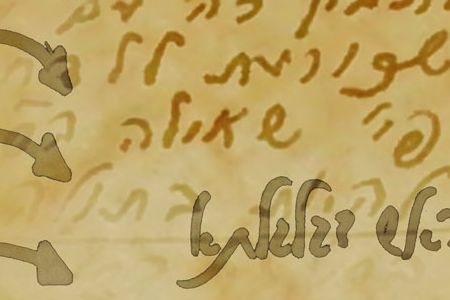
Exodus, 27:20-30:10
This Week’s Torah Portion | Feb 21 – Feb 27, 2021 – 9 Adar II – 15 Adar II, 5781
In A Nutshell
In the portion, Tetzaveh (Command), the Creator provides Moses with additional details regarding the tabernacle, and commands the children of Israel to take olive oil to light the everlasting candle in the tent of meeting outside the veil, so it may burn from dusk to dawn.
The Creator instructs Moses to appoint Aaron and his sons, Nadav, Avihu, Elazar, and Itamar to be his priests. He elaborates on the commandment of preparing the holy garments “for honor and glory” (Exodus, 28: 2): the vest, fringe, coat, and the rest of the garments of the priest.
Afterward comes an explanation on the sanctification of Aaron and his sons for their role in the tabernacle, including the offering of an ox and two rams on the altar of the incense that will be positioned inside the tabernacle before the veil, and how the incense is to be made. Finally, the Yom Kippur (Day of Atonement) is mentioned, which is to take place once a year.

Commentary by Dr. Michael Laitman
The portion, Tetzaveh (Command), is very matter-of-fact, short, and pragmatic. The whole of the substance of creation is the desire to receive. This is the solid basis from which we should begin. We feel the will to receive within us divided into four levels: still, vegetative, animate, and speaking. All our desires are divided in this manner, and we give them the shape of bestowal, namely to aim them toward giving. All desires must be aimed toward our connection “as one man with one heart,”[1] with love of others, as in “love your neighbor as yourself.”[2]
To the extent that we correct each one of our desires, we shape the image of man—becoming similar to the Creator. This is Adam HaRishon (the first man), who shattered and divided into myriad souls. Our purpose is to reassemble those souls into that single soul. We achieve this by annulling our egos and connecting all our desires. The connection is on the levels of still, vegetative, animate, and speaking. In these degrees we gradually reconnect everything into the new reality that the Torah narrates.
First, the oil for the lamp is a special oil, which must be lit in a special way. Subsequently, from the emitted light we can prepare the priesthood garments that clothe the will to receive.
The will to receive remains the same whether it strives to benefit others or itself. The difference lies in how we use it—for our own sake or for the sake of others. That is, do we want to use it to benefit ourselves although it is detrimental to others, or do we want to benefit others? There are two options with myriad variations.
Read the rest of this entry »
February 13, 2021 at 10:00 pm · Filed under Torah Portion
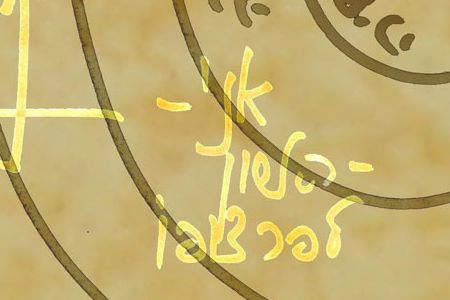
Exodus, 25:1-27:19
This Week’s Torah Portion | Feb 14 – Feb 20, 2021 – 2 Adar II – 8 Adar II, 5781
In A Nutshell
The portion, Teruma (Donation), deals primarily with the building of the tabernacle. The Creator instructs Moses to tell the children of Israel, “And they shall take for Me a donation from every man whose heart moves him you shall take My donation” (Exodus, 25:2). The donations were intended for the building of the tabernacle and its tools—the ark of the covenant, the ark-cover, the showbread table, the Menorah (lamp), the boards of the tabernacle, the sockets, the veil, the copper altar, and the hangings of the court. The Creator also tells Moses how to build the tabernacle. The portion is called Teruma (donation) because of the commandment to donate.

Commentary by Dr. Michael Laitman
All we have is the building of the tabernacle. This is where the Creator is revealed, and this is where He resides. We must build it through a donation, and by raising the importance of the quality of bestowal and love of others (in Hebrew, the word Teruma (donation) also pertains to Harama (raising), as in, “raising the Hey”)[1]. The more we extol the quality of bestowal and use it properly, the more we correct our Kelim (vessels), namely our desires, which we currently use for ourselves, as it is written, “I have created the evil inclination…”[2]
The building of the tabernacle explains the process of our correction from the easiest to the hardest as we gradually build the tabernacle from our lightest, to our heaviest, greatest, and most egoistic desires.
The donation to the tabernacle must come from the heart, which contains all the desires. Only one who is driven by impulse in the heart is permitted to offer a donation, and from this “investment” one builds one’s Kelim. The Kelim are the connections between us, which establish the tabernacle. In the tabernacle appears the upper force, the Creator, according to one’s equivalence of form. That is, we discover the Creator to the extent of our similarity to Him.
The Creator is a hidden force. We are not inherently born with tools to discover Him because we do not possess qualities that are similar to His. For example, we hear sounds because our eardrums react to certain frequencies. Likewise, we can tell different smells because we have olfactory neurons that detect them. These are our Kelim (in Hebrew, Kelim means both “vessels” but also “tools”). However, we are devoid of tools to “detect” the upper force, the Creator, the source of energy.
Read the rest of this entry »
February 6, 2021 at 10:00 pm · Filed under Torah Portion
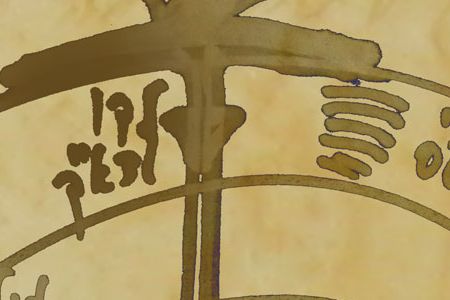
Exodus, 21:1-24:18
This Week’s Torah Portion | Feb 07 – Feb 13, 2021 – 25 Shevat – 1 Adar II, 5781
In A Nutshell
In the portion, Mishpatim (Ordinances), the Creator gives to Moses a collection of laws and judgments pertaining to various topics: between man and man, Hebrew slaves, Hebrew maidservant, murder, theft, lending money, and others. The Creator also dictates laws concerning man and God, meat and dairy foods, the Sabbath, Shmita (year of omission, refraining from growing crops), etc.
Moses conveys to the children of Israel the message that the Creator will help them enter the land of Israel, and warns them about practicing idolatry. Moses reads before them from the book of covenant, and the people reply, “We will do and we will hear” (Exodus, 24:7). Moses builds an altar and offers sacrifices to the Creator, and a covenant is signed between the people and the Creator. Moses carries out the Creator’s command, ascends Mount Sinai to receive the tablets of the covenant, accompanied by his servant, Joshua, and stays there forty days and forty nights.

Commentary by Dr. Michael Laitman
In the portion, Mishpatim (Ordinances), Moses ascends Mount Sinai although he had already received all the laws and ordinances and the children of Israel had already kept the Torah and the laws regarding the offerings. This tells us that laws and ordinances are one thing, and the Torah is another.
The portion details all the laws of the spiritual world, everything a person needs to do. In order to be able to do it we must receive the Torah. The Torah was given because “I have created the evil inclination, I have created for it the Torah as a spice.”[1] That is, one is shown who one is compared to what one should be at the degree of “man,” in a state of loving others and connection among everyone, a state of correction of all the egoistic desires.
This is why the laws come first. One who begins to study the wisdom of Kabbalah understands that first one must correct oneself, one’s attitude toward the group, toward the people, and toward the world. There are many internal corrections of the evil inclination that one must perform. When one understands what one must do is when the time of reception of the Torah arrives. A person learns to receive the light that corrects one during the study.
This is how we gradually obtain the upper world, the Creator, the upper force that fills the upper world. This is why it was said, “We will do and we will hear”: first we must do, and then—in the corrected Kelim (vessels) that we build—we discover the Creator filling those Kelim.
Read the rest of this entry »
January 30, 2021 at 10:00 pm · Filed under Torah Portion
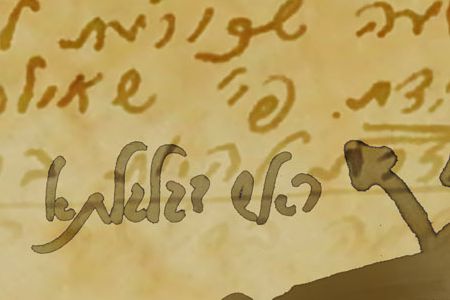
Exodus, 18:1-20:22
This Week’s Torah Portion | Jan 31 – Feb 06, 2021 – 18 Shevat – 24 Shevat, 5781
In A Nutshell
The portion, Jethro, starts with Jethro, priest of Midian, coming out with Zipporah and Moses’ two sons to meet Moses and the nation, which has come out of Egypt. Jethro gives to Moses some organizational tips regarding how to judge the people, explaining that he should divide them into ministers of thousands, ministers of hundreds, ministers of fifty, and ministers of ten.
The children of Israel arrive at Sinai Desert on the third month of their exodus from Egypt, as it is written, “And Israel camped there, before the mountain” (Exodus, 19:2). Moses climbs Mount Sinai and the Creator tells him, “And now, if you will indeed obey My voice and keep My covenant, then you shall be to Me a Segula (chosen/virtue/remedy) out of all the nations, for all the earth is Mine. And you shall be to Me a kingdom of priests and a holy nation. These are the words that you shall speak to the children of Israel” (Exodus, 19:5-6).
Moses informs the elders of the people about the words of the Creator, and they say, “All that the Lord has spoken we will do” (Exodus 19:8). The Creator commands the people through Moses to sanctify themselves for two days, and be ready on the third day, for this is when the Creator will appear before the whole nation.
On the third day, the children of Israel stand at the bottom of the mountain, but they do not want to meet the Creator face to face, so Moses and Aaron climb Mount Sinai and Moses brings down the Ten Commandments.
The children of Israel ask Moses to speak to them instead of the Creator because they are afraid to die. Moses explains to them that they need not fear because the Creator is coming down in order to test them, and to set the fear of Him in them so they will not sin.
The Creator instructs Moses to tell the children of Israel that because they saw Him speaking with them they are forbidden to make gods of silver and gold. Instead, they must build an altar on the ground and sacrifice on it.

Commentary by Dr. Michael Laitman
Jethro, priest of Midian, is not from Israel. He is from the will to receive in order to receive, a Klipa (shell/peel) that has been mitigated by Moses. Jethro rises and connects to Moses through his Nukva (female), his daughter Zipporah, with whom Moses has two sons. This is the big and broken will to receive that the Moses in us is gradually correcting.
When Moses comes to Jethro after he has fled, a connection is made between the point in the heart, Moses, and the ego. Thus, a correction is made so that afterward it will be easier for a person to make corrections on the more advanced stages.
The correction helps one begin to divide oneself into tens, fifties, hundreds, and thousands, meaning to build the structure of the soul. The whole Torah deals with the construction of our soul and how we turn our egoistic desire into a desire with the aim to bestow. When the desire acquires the aim to bestow, it is called a “soul.”
The force of reception is called the “self,” “this world.” Everything I see and everything I feel is the force of reception. The force of bestowal is exit from reception. When I work in order to bestow, in “love your neighbor as yourself,”[1] I obtain my soul. My inner Moses is pulling away from the quality of reception toward the quality of bestowal, bringing me out of myself, and allowing me to see the upper world and begin to feel the Creator.
Read the rest of this entry »
« Previous entries ·
Next entries »








